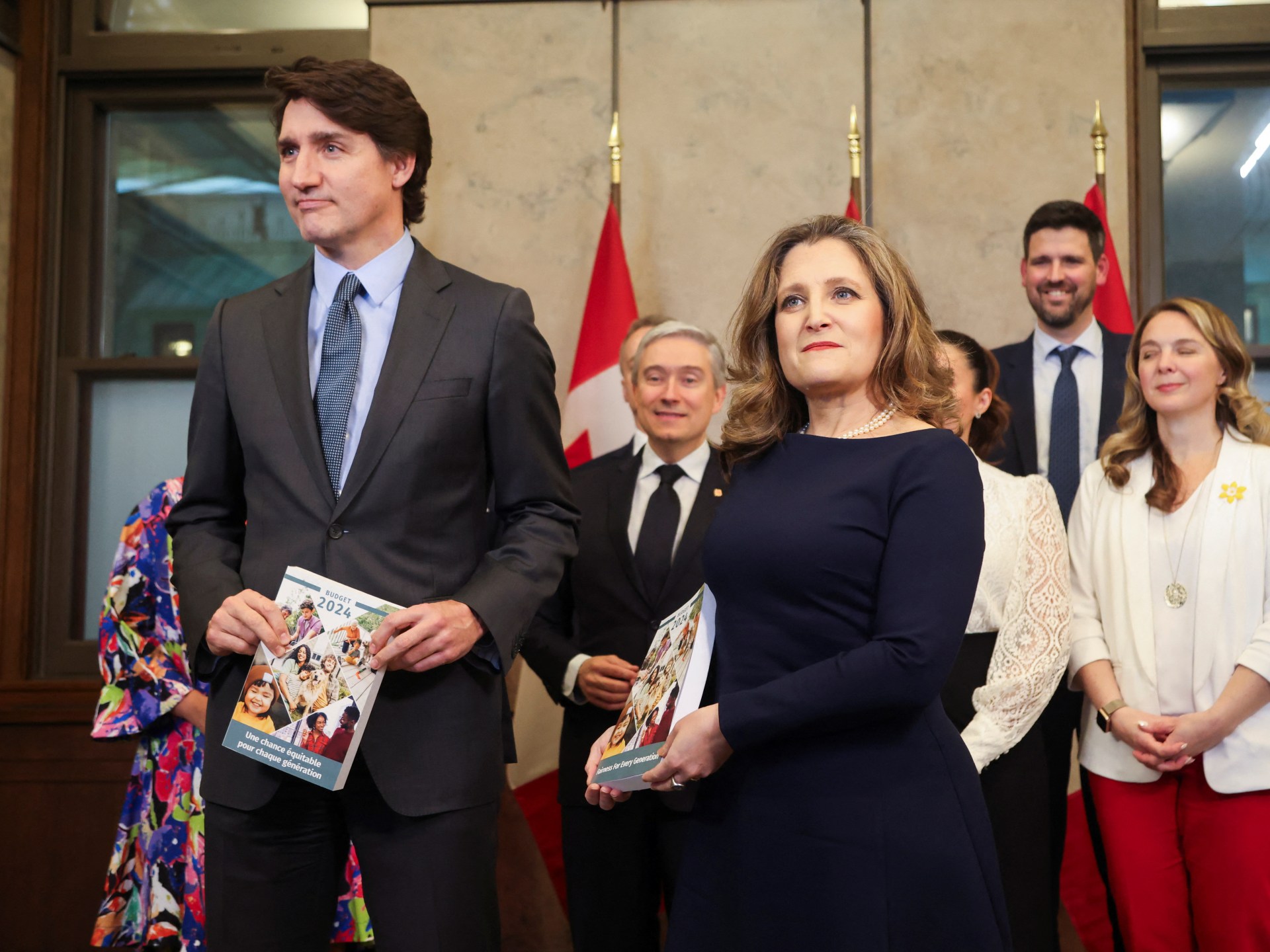
The budget proposes to increase taxes on capital gains and spend billions on education, housing, jobs and mental health.
Canada will ask the wealthy to pay higher taxes as Prime Minister Justin Trudeau's government seeks to shore up flagging support among young voters ahead of elections expected next year.
The wealthiest Canadians should pay more, while billions of dollars will be invested in education, housing, jobs and mental health services, Finance Minister Chrystia Freeland said in her annual budget announcement Tuesday.
The budget proposes C$53 billion ($38 billion) in new spending over five years, most of it directed toward millennials and Generation Z in the form of affordable housing, student grants and loans, rental subsidies and employment programs.
Under the proposals, capital gains above C$250,000 ($180,804) would be taxed at 66.7 per cent, up from 50 per cent, raising nearly C$20 billion ($14.5 billion) in revenue over the course of five years.
The opportunity for young people to build a comfortable middle-class life “has always been the promise of Canada,” Freeland said.
“But today, Millennial and Gen Z Canadians can get a good job, they can work hard, they can do everything their parents did and more, and too often the reward remains out of reach,” she added.
“They look at their parents' lives and wonder, 'How am I going to be able to afford this?'
Freeland acknowledged that raising taxes would lead to some decline, but said the increase would ensure the wealthy pay their fair share.
“But before they complain too bitterly, I would like the 1% in Canada — the 0.1% in Canada — to think about this: What kind of Canada do you want to live in?” She said.
The Business Council of Canada (BCC) criticized the proposed budget as “good policy for some” but “bad economic policy for all.”
“Wealth redistribution does not equal wealth creation, and the spending measures introduced today will burden Canadians with debt without encouraging the strong and sustainable economic growth they deserve,” Goldie Haider, president and CEO of the BCC, said in a statement.
The budget will need the support of the left-leaning New Democratic Party, which keeps Trudeau's minority government in power, to pass through Parliament.
Trudeau's Liberal government is trailing badly behind the Conservative Party, led by Pierre Poilievre, ahead of a general election scheduled by the end of October 2025.
Trudeau, who has led Canada since 2015, has seen a sharp decline in his popularity amid widespread discontent over the cost of living and housing.
In a January poll by Nanus Research, two out of three Canadians said Trudeau was doing a poor job of tackling unaffordable housing.
Trudeau earlier this month announced plans to build nearly 3.9 million homes by 2031 to fill the growing gap between housing supply and demand.




More Stories
Journalists convicted in Hong Kong sedition case
Stand News: Hong Kong journalists convicted of sedition in case critics say highlights erosion of press freedom
Shark decapitates teen off Jamaica coast